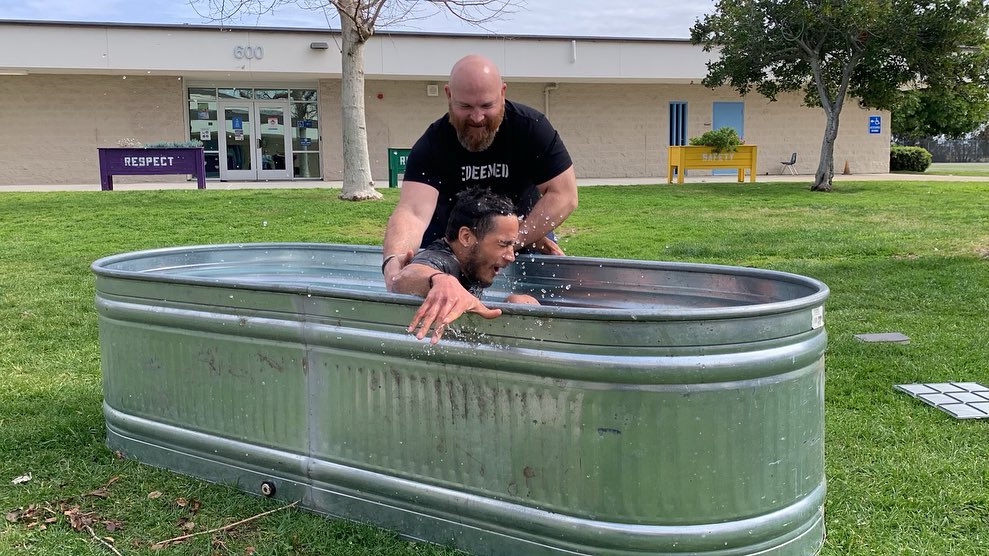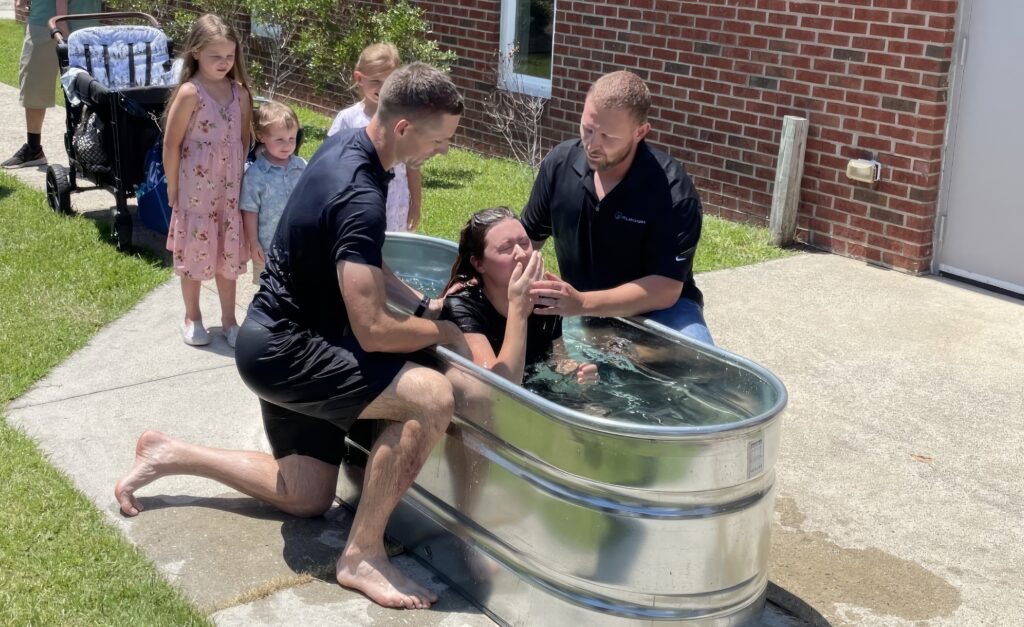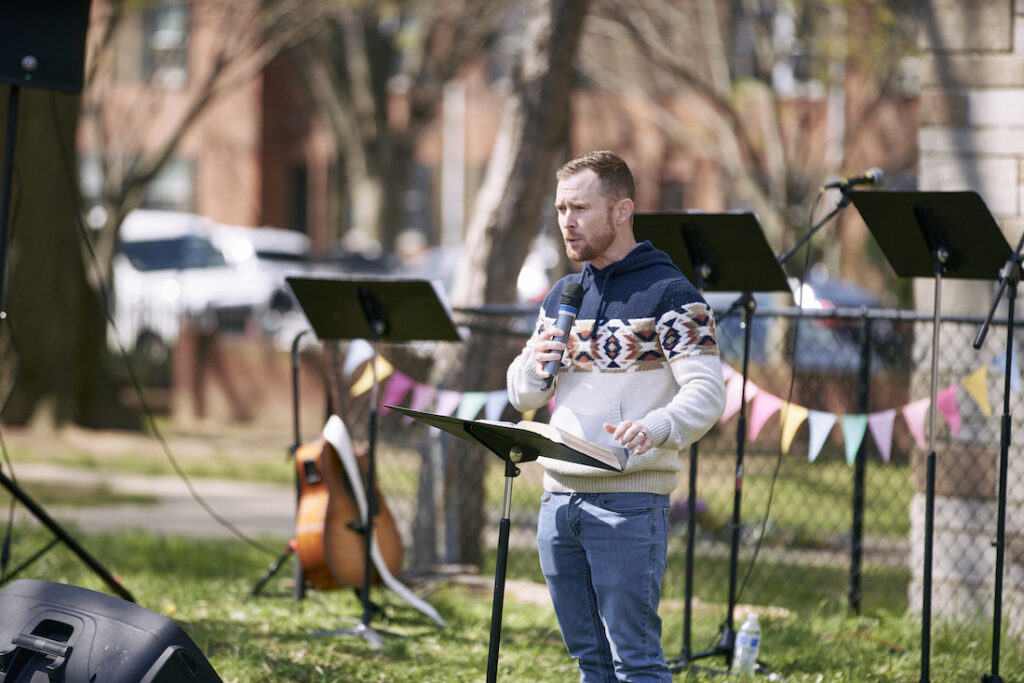I was standing at the door after church, talking with folks, when a woman who’d been visiting our church approached and blurted, “Can we be friends?” I knew immediately what she meant: she wanted to connect with other women and with the church, because she was in a time of transition and needed a lifeline of relational security. The surest thing, it seemed, was the smiling pastor’s wife who’d greeted her at the door each week.
I swallowed hard, trying to think of a response to a difficult and uncomfortable question from someone I didn’t know. In the past, I would have immediately answered, “Yes, of course!,” taken down her number and then invited her to coffee, not so much because I was a bleeding heart but because I felt guilty if I didn’t do it. After all, I told myself, wasn’t that what a good pastor’s wife would do?
I know now that unless it’s prompted by the Holy Spirit, it’s not what a good pastor’s wife would do. Spending time with people to avoid feeling pressure, guilt, or the discomfort of knowing we’ve disappointed someone is not Spirit-led ministry, and it’s certainly not the gateway toward friendship, for either party.
In my last post, I discussed how important it is for us, as pastor’s wives, to have a hearty and healthy perspective on friendship. It’s important because it helps us navigate our many relationships, but it’s also important because we have the opportunity to model for other women how to do the same. We not only need a healthy perspective regarding friendship for ourselves; we have the opportunity to teach others a healthy perspective on friendship.
Talk about friendship and community
When women come to me for counsel, they usually want to talk about issues related to community or friendship. Some are feeling lonely or left out, some are in transition, some need help forming words as they consider approaching a friend who is in sin and some have been hurt by other women.
Pastor’s wives, we are often a type of security blanket for other women in church or group settings, especially if we’re open and friendly. I think this is mostly a good thing, because it offers us an opportunity to shepherd and speak into the lives of women around us. We can say hard things or challenge perspectives because we often have worked to build the relational capital.
In conversations with other women, as I have opportunity, I often speak about the “big picture” in our church, which I can uniquely see from my vantage point as the pastor’s wife. I tell the older women that the younger women desperately want to know them, even though the younger women may not know exactly what to ask or how to approach them. I tell the younger women, much to their surprise, that the older women can relate to their fears and insecurities. I challenge perspectives regarding age, marital status, race and educational choices—all the things that keep women apart because they assume they’ll have no commonalities. I challenge assumptions, trying to teach giving others the benefit of the doubt.
Being a type of security blanket for others, however, can be a bad thing if we think of ourselves as the answer to every problem. If someone is not connecting within the church or has been hurt, it’s easy to slip into “fix-it” mode and feel responsible for that person’s well-being. We may begin to feel we have to include everyone in everything we do or that we need to constantly be the “giver” and never the “receiver.”
Again, we have opportunities here. The opportunity comes through refusing to be the all-knowing, all-powerful, all-present Christ, because we aren’t and only hurt ourselves and others when we try to be. In other words, much of our opportunity for teaching others comes through disappointing people and that opportunity is for the person to find their hope and comfort first and foremost in the Lord.
In conversations with women, we can voice these truths in gentle and loving ways. I often have to help people see that hurt in relationships is inevitable, that no church is perfect, and that each person can make choices and take responsibility for pursuing deep community. They need to know that, in fact, friendships and connection within the church takes persistent intentionality over time.
Connect others
I’m not advocating a cold-hearted approach to women in our churches. Not at all. I am, however, advocating for pastor’s wives to not try to be everyone’s all-in-all. The way we avoid being the all-in-all is to personally connect with those the Holy Spirit is nudging us toward for discipleship and friendship and then, for all others, use our influence to connect other women with one another.
- Who might the person expressing loneliness have something in common with?
- Where might the socially shy or introverted find a small group fit?
- What older woman might be a meaningful mentor for the younger woman?
The possibilities for connection are ongoing and endless, and by intentionally connecting others, we move from being the overwhelmed hub of a wheel to being a part of the living, growing body of Christ.
With the woman at the door requesting my friendship, I tried to remember my own advice. I smiled and said, “I’d love to invite you to the small group that meets in our home.” I wrote down the details on the bulletin and handed it to her, and although later I felt a twinge of guilt at not running to rescue her, I realized that instead of accepting responsibility for fixing her situation, I’d put the responsibility for her community where it belonged: with her. I’d opened the door. Then I prayed she’d walk through it.
Published May 30, 2017




